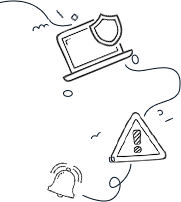Introduction
Have you ever tried to sneak a peek at your favorite social media site or catch a quick cat video during a break, only to find yourself face-to-face with a “site blocked” message? If you’re on a work or school Wi-Fi network, welcome to the club—you’re not alone in this digital drama!
So why does this internet handcuffing happen?
Organizations don’t just block websites because they want to practice their strictness skills. Let’s take a deep dive into how restricting certain sites can help keep the workplace a more secure, efficient, and productive environment—or at the very least, prevent spontaneous office dance parties initiated by TikTok!
Why Wi-Fi Blocks Content
One of the major reasons is productivity. Employers want employees focused on work-related tasks that contribute to the success of the company, not gearing up for an epic gaming session on company time. Sites like YouTube and TikTok tend to distract even the most focused of workers. Moreover, streaming videos or downloading giant files can bring the network to its knees—imagine everyone trying to watch a video while the Wi-Fi resembles a snail on a leisurely stroll.
Another critical reason is security. The internet is like a large marketplace filled with potential threats: malware, phishing scams, and other cyber risks are just around the corner. By blocking access to certain sites, companies reduce the chances of employees accidentally (or intentionally) letting harmful content into the network. Let’s face it; nobody wants a computer virus popping up like an unwanted party guest!
Some workplaces restrict content based on company policies or legal regulations, especially in industries like finance, healthcare, or education. That’s right—there are rules galore, and they can make your favorite site as hard to access as a hidden treasure map. Legal and policy compliance is key to workplace cybersecurity; it also keeps people from spending too much time in a YouTube rabbit hole instead of focusing on their reports!
What Blocked Websites Mean for You
So, what does this all mean for you? Companies often log all internet activity—think of it as an all-seeing eye monitoring security threats or policy violations. Unfortunately, this means sites like your beloved social media, streaming platforms, and gaming websites may be off-limits. How rude!
And guess what? Tools like firewalls, DNS filters, and proxy servers enforce these rules about what’s acceptable to view. These tools can block entire categories of websites or specific URLs, with the ability to apply different rules depending on your user role or the time of day. For instance, your company might allow their social media manager to roam freely on Facebook, while the sales team remains confined to more “professional” content. Sorry, sales team—you can only scroll through spreadsheets!
Conclusion
Just remember, these tools are here to protect the company’s sensitive data, keep the network running smoothly, and help everyone stay focused—like a cat laser pointer, but with fewer distractions. If you ever need access to a blocked page for legitimate work purposes, don’t hesitate to ask your supervisors; they might be willing to make exceptions for valid reasons, akin to granting a prisoner a day pass to the park!
So, the next time you encounter blocked websites at work, take a deep breath. It’s not personal—it’s all about keeping the digital workspace safe and efficient…like a well-oiled machine (that occasionally runs out of oil). You’ve got this!
The post Why Are There Blocked Websites on Work WiFi? appeared first on Cybersafe.




